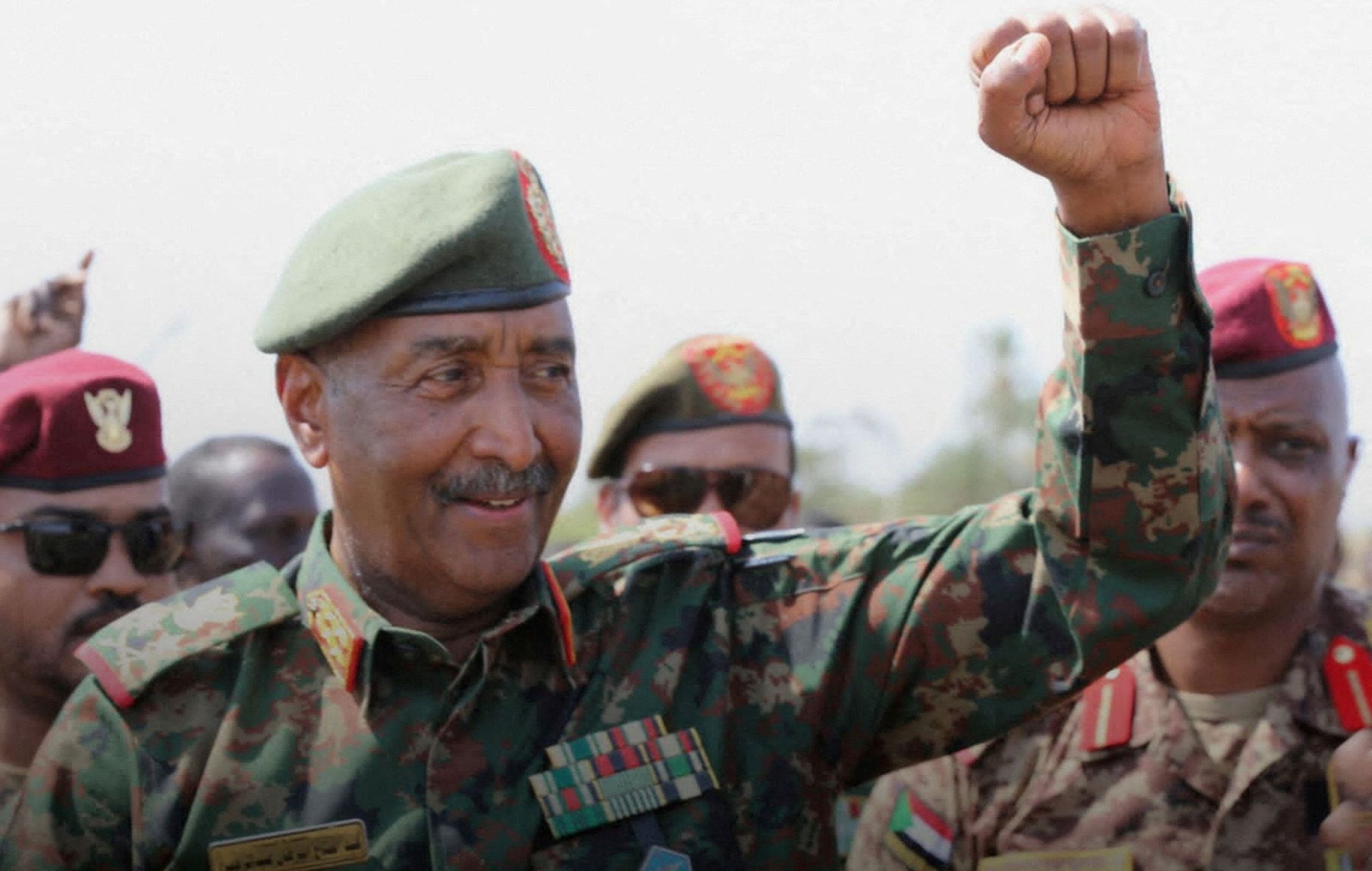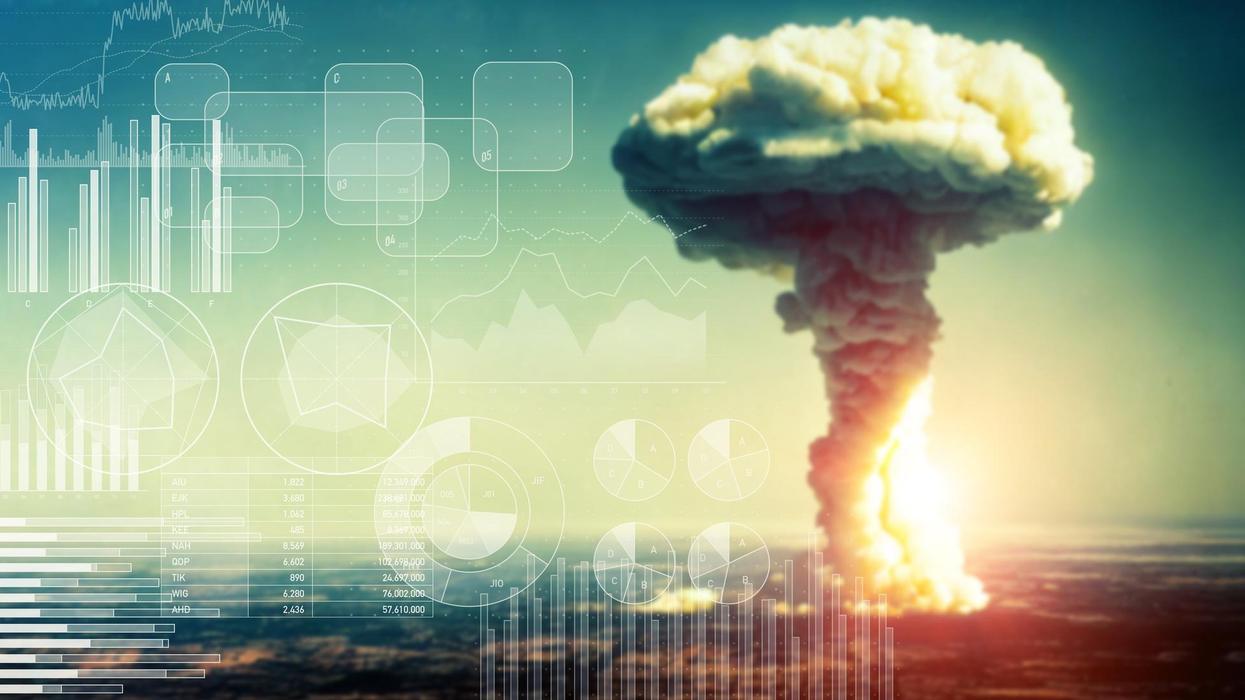In the final days of Ramadan, before Mecca's Grand Mosque, Sudan's de facto president and army chief, General Abdel Fattah al-Burhan knelt in prayer beside Saudi Crown Prince Mohammed Bin Salman. Al-Burhan had arrived in the kingdom just two days after his troops dealt a significant blow to the paramilitary Rapid Support Forces (RSF), recapturing the capital Khartoum after two years of civil war. Missing from the frame was the United Arab Emirates (UAE), the Gulf power that has backed al-Burhan’s rivals in Sudan’s civil war with arms, mercenaries, and political cover.
The scene captured the essence of a deepening rift between Saudi Arabia and the UAE — once allies in reshaping the Arab world, now architects of competing visions for Sudan and the region.
For two years, Sudan has been enveloped in chaos. The conflict that erupted in April 2023 between the Sudanese Armed forces (SAF) and the RSF, led by General Mohamed Hamdan Dagalo "Hemedti," has inflicted immense suffering: an estimated 150,000 killed, allegations of mass atrocities staining both sides but particularly the RSF in Darfur, 12 million displaced, and over half the population facing acute food insecurity.
Khartoum, once a symbol of confluence, bears deep scars — widespread destruction, looted homes, and streets haunted by the unburied dead. It was against this backdrop of devastation and military gains that al-Burhan made his trip across the Red Sea.
Early in the conflict, Saudi Arabia played a prominent role by facilitating the evacuation of thousands of foreigners via Port Sudan, an effort that garnered significant goodwill. Building on this, and alongside the United States, the kingdom stepped into the role of mediator hosting the Jeddah ceasefire talks in May 2023.
This mediation aligned with Riyadh’s broader strategic pivot toward de-escalation, evident in its rapprochement with Iran and its transformation from aggressor to peacemaker in Yemen. Instability across the Red Sea poses a direct threat to the kingdom’s ambitious Vision 2030 economic overhaul — particularly its crown-jewel projects like NEOM and the Red Sea tourism megaprojects along its western coastline, as well as the Yanbu Terminal expansion, which aims to diversify oil export routes away from the Strait of Hormuz. Such turmoil also risks undermining Saudi Arabia’s critical food security investments in Sudan, where vast agricultural ventures had become a linchpin of bilateral ties.
However, the Jeddah process withered and the commitments signed on paper dissolved under the reality of continued fighting. A subsequent U.S.-led effort in Geneva, pivoting to humanitarian access after the Jeddah talks collapsed, faltered when the SAF boycotted the talks entirely. By 2025, the return of President Donald Trump’s “America First” doctrine gutted what remained of American diplomatic capital. USAID’s funding slashes — which shuttered 77% of Sudan’s emergency food kitchens — not only deepened famine but stripped Washington of a key lever it could use to compel concessions. With the U.S. retreating inward, the vacuum proved irresistible to Saudi Arabia.
The tipping point arrived in February 2025. As the RSF and its allies formalized their charter for a parallel administration in Nairobi, Saudi Arabia, alongside Qatar and Kuwait, issued a firm public rejection. The Saudi Foreign Ministry unequivocally stated its opposition to "any illegitimate steps taken outside Sudan’s official institutions that threaten its unity.”
Al-Burhan’s recent visit to Saudi Arabia and its timing solidified this alignment. The agreement announced by both nations during the visit to establish a “coordination council to strengthen relations” signaled long-term engagement, moving beyond the neutral arbiter role. Crucially, this meeting directly followed a high-level Saudi delegation's visit to Port Sudan days earlier, focused squarely on reconstruction.
While Riyadh actively cultivates the role of regional stabilizer, Abu Dhabi faces mounting scrutiny regarding its alleged role in fueling the RSF’s war effort.
In March 2025, Sudan filed a case at the International Court of Justice, accusing the UAE of violating the Genocide Convention through its alleged military, financial, and political support for the RSF, thereby facilitating atrocities, particularly the ethnic cleansing of the Masalit in West Darfur. While the UAE’s foreign minister dismissed the case as "feeble media maneuvers," the charges echo findings from a U.N. Panel of Experts report, which deemed evidence of UAE arms supplies (including drones and air defenses) to the RSF as "credible."
This alleged support has triggered significant political fallout in Washington. U.S. lawmakers Sen. Chris Van Hollen (D-Md.) and Rep. Sara Jacobs (D-Calif.) publicly confirmed in January, citing administration briefings, that the UAE was indeed arming the RSF, directly contradicting prior assurances it gave the Biden administration. Rep. Gregory Meeks (D-N.Y.), ranking member of the House Foreign Affairs Committee, also placed holds on arms sales to the UAE over its role in Sudan.
The UAE's actions in Sudan appear consistent with a wider regional modus operandi. Abu Dhabi’s playbook involves empowering non-state actors, often with secessionist leanings, to secure access to resources and strategic geography. We see this pattern in Libya with its backing of Khalifa Haftar, and in Yemen through its enduring support for the Southern Transitional Council (STC), whose push for independence directly counters Saudi efforts to maintain Yemeni unity under the Presidential Leadership Council (PLC).
Somalia offers another vivid example, where the UAE circumvented Mogadishu to directly arm and fund regional entities like Puntland (reportedly using its Bosaso base for RSF resupply), Somaliland, and Jubaland, thereby fragmenting the country while securing coastal footholds. The announcement of the RSF's parallel government in Nairobi last month seemed a direct application of these tactics. The UAE finalized a $1.5 billion loan to Kenya the same week, prompting speculation that its influence played a role in Nairobi hosting the event.
The widening gulf over Sudan, therefore, is not an isolated disagreement but symptomatic of a deeper strategic divergence between Riyadh and Abu Dhabi. Where they once coordinated closely, particularly in countering the perceived threat of the Muslim Brotherhood and attempting to reshape the GCC during the Qatar blockade, their paths now diverge sharply.
Economically, they compete fiercely, with Saudi Arabia challenging Dubai's business hub status through policies requiring regional HQs in Riyadh and launching rival mega-projects. Within OPEC+, tensions have simmered between the two over production quotas, reflecting differing priorities and misaligned projections on the proximity of the decarbonized future. Even maritime borders near the Yasat Islands has become a point of contention, with Riyadh lodging complaints at the U.N. against Abu Dhabi's unilateral demarcation of the potentially oil-rich area.
This rivalry now spills into the public domain via social media. Recent online clashes saw well-known and widely followed Saudi commentators brand Emirati counterparts as "outcasts," describing them as being "hated by Arabs and Muslims." In tightly controlled media environments, such sharp exchanges often reflect official displeasure.
Ultimately, Sudan is paying the price for this fractured Gulf relationship. Saudi Arabia, driven by its Vision 2030 imperatives and a desire to reassert regional leadership through stability and state institutions, has placed its bet on the SAF. The UAE, focused on resource access and countering perceived ideological threats, continues its alleged support for the RSF despite the mounting condemnation.
As long as the rivalry persists, Sudan will remain tragically caught in the crossfire, its future held hostage by a geopolitical struggle reshaping the contours of power across the region.
- Sudan is tearing itself apart and Washington lost its capacity to help ›
- The conflict in Sudan threatens to devolve into a regional maelstrom ›
- Sudan is bleeding to death and current triage is useless ›
- Will Sudan attack the UAE? | Responsible Statecraft ›
- Saudi leans in hard to get UAE out of Sudan civil war | Responsible Statecraft ›
















